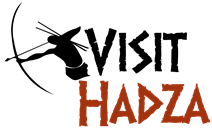Maasai Tribe
Tanzania’s Icon of Tradition and Identity
The Maasai are one of the most renowned and visually iconic tribes in Tanzania and East Africa, known for their distinct culture, traditional dress, and semi-nomadic way of life. They inhabit parts of northern Tanzania and southern Kenya, particularly around popular tourist areas such as Arusha, Ngorongoro, Serengeti, and Kilimanjaro.
Language and Identity:
The Maasai people speak the Maa language, which is part of the Eastern Nilotic language group. Most Maasai also speak Swahili, the national language of Tanzania, and many speak basic English, especially in areas influenced by tourism. The name Maasai means “My People” in their language.
Livelihood and Economy:
Traditionally, the Maasai are semi-nomadic pastoralists, meaning they move with their livestock in search of pasture and water. Cattle, goats, and sheep are central to their economy and way of life, serving as a source of food, wealth, dowry, and social status. Cattle are so important that the Maasai measure wealth by the number of cattle and children one owns.
Culture and Traditions:
Maasai culture is rich and deeply rooted in oral tradition, music, storytelling, and ceremonial rituals. Some of the most recognized aspects of their culture include:
Traditional Dress: Maasai people are known for their colorful shúkà (robes), often red or blue, and intricate beaded jewelry worn by both men and women.
Warriorhood: Young Maasai boys undergo rites of passage to become “Morans” (warriors), including circumcision ceremonies and training in courage, responsibility, and survival skills.
Dance and Song: The Maasai perform rhythmic dances, including the famous adumu or “jumping dance,” during ceremonies and celebrations.
Tourism and Cultural Visits:
Maasai villages near national parks offer cultural experiences where visitors can:
Tour traditional Maasai bomas (homesteads)
Learn about daily life, crafts, and dances
Purchase handmade beadwork and crafts
Hear stories from elders and warriors
These interactions offer a respectful and educational insight into one of Africa’s most resilient and proud cultures.
Whatsap Us:
+255 756 914 295




